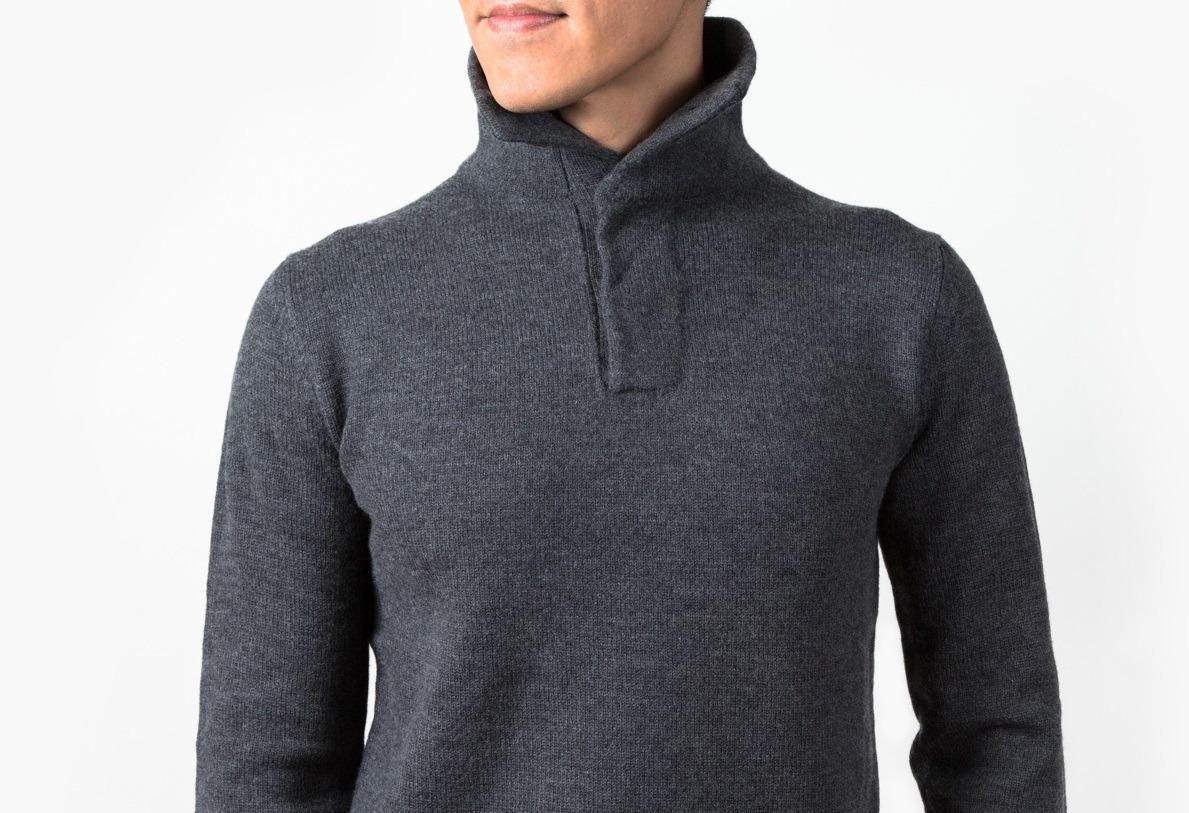
Merino wool has been prized for centuries because of its soft texture and ease of delivering warmth for high performance clothing. But its production has sparked its share of problems, from outrage over animal cruelty to the industry’s environmental impact. The wool industry in Australia, where about half of all the globe's merino wool originates, has been called out for its cruel practices by PETA and the singer Pink. In recent years, more companies large and small, from Patagonia to PACT, are reacting by insisting that they now invest in more sustainable wool. Another company, Boerum Apparel, is taking ethics within its entire wool supply chain seriously, from farm to mill to factory.
So how does Brooklyn-based Boerum Apparel deliver impeccably-designed sweaters that boast fibers only 17.5 microns thick, yet are manufactured in a socially responsible way?
The journey starts on New Zealand’s South Island, on land such as a 14,000 acre farm that has been owned by the same family for 80 years. Scenes of the farm sum up our images of New Zealand; the Elliot family lets their sheep graze freely along the hills in their property, in small flocks so that none of the land risks overgrazing. The high altitude and cool weather, which rarely exceeds 68F° (20C°), allows the sheep to grow their coat without the danger of contracting flystrike, an infection that motivates many sheep herders to subject them to mulesing—the painful removal of hind skin callously done in the name of preventing infection.
From New Zealand’s hills the wool is taken to a mill and processed into yarn in Milton, a nearby town of 2,000 people. Also a family-owned business, the Bruce Woollen mill is less than an hour’s drive from many of the ranches where the local sheep are raised. Unlike the massive mills in countries like China where raw materials come from everywhere and everywhere, this mill knows all of the local ranchers personally—so employees know exactly which fiber comes from which pasture.
That yarn finally makes it across the Pacific to southern California, where workers turn the yarn into sweaters at Andari Fashion, a knit factory in the eastern Los Angeles suburb of El Monte. According to Boerum Apparel, the factory is inspected by auditors several times a month, and the workers can earn a decent wage.
Teel Lidow, the founder of Boerum Apparel, has been featured in many publications including Crain’s New York. The former corporate attorney founded Boerum Apparel with his own money, and recently has hit the conference circuit, including the Humane Society’s recent national meeting.
The work of Lidow and other entrepreneurs dedicated to ethical and cruelty-free clothing is reflective of how the fashion industry is facing more pressure to clean up its act, from stopping factory abuses in such nations as Bangladesh to reducing the amount of chemicals used in production. And while the focus on animals has long been on fur and leather, more activists, and consumers, want to know more about other animal fibers including wool. While some customers may balk at the cost of a sweater produced in humane conditions, more are realizing that cost is more than what comes at the register or by clicking on the “confirm purchase” button on a web site. Considering the clean and transparent trail Boerum Apparel’s clothing leaves behind thanks to a commitment to responsible sourcing, many will find these sweaters a very fair deal.
After a year in the Middle East and Latin America, Leon Kaye is based in California again. Follow him on Instagram and Twitter. Other thoughts of his are on his site, greengopost.com.
Image credit: Boerum Apparel

Leon Kaye has written for 3p since 2010 and become executive editor in 2018. His previous work includes writing for the Guardian as well as other online and print publications. In addition, he's worked in sales executive roles within technology and financial research companies, as well as for a public relations firm, for which he consulted with one of the globe’s leading sustainability initiatives. Currently living in Central California, he’s traveled to 70-plus countries and has lived and worked in South Korea, the United Arab Emirates and Uruguay.
Leon’s an alum of Fresno State, the University of Maryland, Baltimore County and the University of Southern California's Marshall Business School. He enjoys traveling abroad as well as exploring California’s Central Coast and the Sierra Nevadas.














